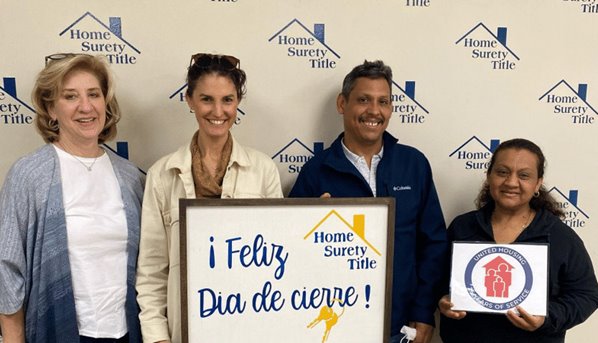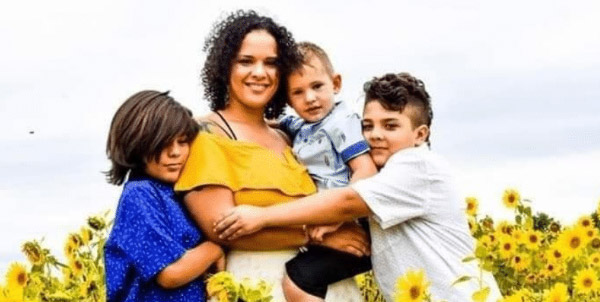Shared equity housing is an important resource for tackling the affordability crisis across the United States and Puerto Rico. As home prices have skyrocketed to more than five times the median household income, standard approaches to affordable homeownership serve a dwindling number of families, because limited subsidy dollars must be spread across fewer households. Shared equity housing can assist by establishing lasting affordability that serves multiple families over time. These shared equity solutions also preserve communities threatened by displacement and offer families a stepping stone into traditional homeownership.
While the number of shared equity homes is growing, many community development organizations do not have the technical knowledge and local expertise to implement and scale shared equity programs. NeighborWorks America's Shared Equity Initiative seeks to build understanding and adoption of shared equity programs among NeighborWorks network organizations nationwide and to foster the replication of successful practices in the field at large. The results of the first three years of this program that was specifically funded by Congress show that we are succeeding in this goal. Our 29 grantees have brought 465 new shared equity homes into the development pipeline and have developed innovative approaches to financing and preserving permanently affordable homes. Moreover, NeighborWorks network organizations across the nearly 250-member network have gained practical awareness of the pathways and resources needed to make effective use of shared equity approaches and have access to new tools to support their exploration and planning to employ shared equity models in their communities.
Catalyzing Change: Insights on Designing Programs that Work
 We offer several insights about program design from the Shared Equity Initiative to equity-minded funders, intermediaries and national organizations that are seeking to catalyze change and scale innovative approaches using shared equity models.
We offer several insights about program design from the Shared Equity Initiative to equity-minded funders, intermediaries and national organizations that are seeking to catalyze change and scale innovative approaches using shared equity models. Design programs that meet participants where they are
The Shared Equity Initiative functions as a "ladder of capacity." We provide:- Early-stage feasibility grants for grantees who are deciding whether to pursue a shared equity program;
- Mid-stage planning grants for organizations that are actively planning and expanding their shared equity work; and
- Innovation grants that support mature organizations to scale up or try new shared equity models.
Some of our 2020-2021 feasibility grantees decided that shared equity was not a model they wished to pursue at this time, and that was part of the program design – we received more interest because early-stage applicants felt they had the autonomy to decide whether shared equity was the right choice for their organization and community. Other feasibility grantees have advanced and are currently building shared equity homes.
Meanwhile, many of our innovation grantees have found new ways to grow the shared equity space. Some are working to preserve homeownership, predominantly with homeowners who earn 30% Area Mean Income (AMI) or less and who do not qualify for traditional financing. Others have developed new ways for a variety of shared equity housing models to access capital.
Design for multifaceted impact with a focus on equity
 Shared equity approaches not only preserve affordability, but they can also create community control, build resident engagement, promote reinvestment, strengthen and stabilize neighborhoods and mitigate displacement. In designing the initiative, NeighborWorks sought to realize the multifaceted impacts of shared equity approaches that extend beyond the benefits of homeownership. We also focused on supporting efforts that were integrated into existing community revitalization strategies, thus ensuring that the efforts contributed to a comprehensive, place-based approach.
Shared equity approaches not only preserve affordability, but they can also create community control, build resident engagement, promote reinvestment, strengthen and stabilize neighborhoods and mitigate displacement. In designing the initiative, NeighborWorks sought to realize the multifaceted impacts of shared equity approaches that extend beyond the benefits of homeownership. We also focused on supporting efforts that were integrated into existing community revitalization strategies, thus ensuring that the efforts contributed to a comprehensive, place-based approach. In deploying its resources, NeighborWorks prioritized organizations serving rural communities, communities of color, historically under-resourced communities and/or communities that are vulnerable to displacement. We also prioritized efforts with strong, ongoing resident engagement. By integrating an equity focus at the outset, NeighborWorks was able to direct resources toward efforts aimed at addressing disparities and inequities.
Provide opportunities for supported, structured, peer learning
Peer learning is a hallmark of the Shared Equity Initiative. Our peer match grants paired early-stage organizations with mature shared equity organizations. Both peer organizations – mature and early-stage – received funding to support their participation. In addition to these peer match grants, the initiative also fostered peer learning through group webinars and a Shared Equity Symposium that attracted participants from across the NeighborWorks network.Grantees praised the peer learning experience in their final reports. They found that peer conversations helped them successfully navigate uncertainties and challenges. They also felt that peers were able to answer questions on a wide range of needs, including:
- Organizational setup;
- External communication with funders, policymakers and industry partners; and
- Community and homebuyer engagement.
Evaluate and collect feedback
NeighborWorks America's social enterprise for evaluation, Success Measures, worked with four mature shared equity organizations to evaluate resident outcomes. The shared equity field has historically done a good job of tracking the financial equity that shared equity owners have in their units, and the extent to which the units remain affordable for future owners. However, less evaluation has been done about other benefits of shared equity ownership for residents. By selecting a small group of organizations to conduct evaluations that addressed resident and organizational outcomes, the NeighborWorks initiative covered new ground. To differing degrees in four communities across the country, residents of shared equity programs reported increased financial stability, quality of life and well-being. Many also shared that they felt a new sense of self-determination and knowledge of their neighbors. As NeighborWorks continues to build its Shared Equity Initiative in the coming years, we hope to continue to help organizations capture results that will help communicate the benefits of shared equity to developers, policymakers and financing institutions.Expand subject matter expertise
In attempting to build capacity among our network, we encountered a challenge around a limited pool of technical assistance providers with deep experience and expertise in shared equity. Through a consultant mentorship program, NeighborWorks is growing subject matter expertise in the field and increasing the diversity of technical assistance providers. The mentorship program begins by providing NeighborWorks shared equity training courses as a foundation, then pairing experienced consultants with emerging consultants of color to build a consultant base that reflects the diversity of shared equity communities. This approach could serve as a model for other emerging or growing fields.Learn more about the impact of shared equity housing models:
- Implementing shared equity: Ideas for community developers
- Catalyzing changes in community development practice
- Shared equity creates new possibilities, report shows
- Building trust and equity
- An exchange of ideas, solutions
- NeighborWorks symposium, Virtual Training Institute, to focus on shared equity
- One home at a time
- Community land trusts: Creating housing opportunities for the common good

